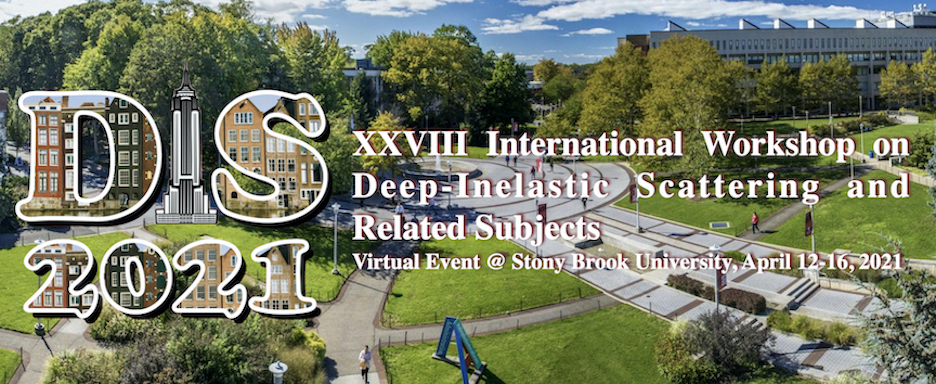Speaker
Description
Hard exclusive meson production is a well established tool to study the 3D nucleon structure in terms of the transverse position and the longitudinal momentum component of the partons. The QCD factorisation mechanism in the "nearly forward region" ($t/Q^{2}$ small) can be divided into a hard part, described by perturbative QCD (pQCD) and in two general structure functions, the GPDs for the nucleon and the pion distribution amplitudes (DAs), describing the complex non perturbative structure of these particles. In the "nearly backward" kinematic region ($u/Q^{2}$ small) the potentially applicable collinear factorized description in terms of a convolution of the non-perturbative nucleon to pion transitions (TDAs), the nucleon DAs and the hard interaction amplitude from pQCD is assumed to be valid. The talk presents a measurement of single beam spin asymmetries to extract ALUsinφ moments from the hard exclusive π$^+$ channel off the unpolarized hydrogen target in a wide range of kinematics from forward angles to backward angles in the center of mass frame based on data taken with the CLAS spectrometer at Jefferson Lab. The results clearly show that the sign of forward beam spin asymmetry measurements is positive whereas that of backward BSA measurements is negative, with the sign transition taking place around 90°. By performing accurate measurements over a wide range of $Q^2$, $x_B$ and $-t$, we can explore the transition from hadronic to partonic reaction mechanisms. In addition, for the GPD regime a detailed multidimensional study will be presented based on CLAS12 data and discussed based on a comparison to theoretical calculations.

